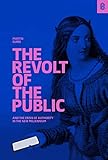https://hn.algolia.com/?dateRange=pastMonth&page=0&prefix=fa...
While twitter and the corporate media are largely absent from the same scrutiny, as you note. They are just as responsible for eroding democratic norms, eroding trust and whipping up the public into a frothing, misinformed rage.
Now this culminates with an impeccably credentialed, rich, Harvard elite `whistleblower` who is largely repeating what we've long known? And who just started a twitter account and web site while on a whirlwind tour. And who is roundly supported by the corporate media and government. This doesn't strike me as speaking truth to power. It's the opposite.
Contrast with Snowden, who came out with new revelations and knowingly took on a great amount of risk to do so. There was no anti-NSA media surge leading up to his appearance. He was not embraced by the ruling class. Rather he infuriated them. That is speaking truth to power.
What we are seeing is the ruling class desperately trying to reassert control over the flow of information. Using facebook as a mechanism to take back control is smart, clearly. Both sides of the aisle want to regulate them. Mark is not a sympathetic character. People want to see a powerful corporation and CEO finally get more than a slap on the wrist. We thirst for a hanging. It appears they are going to give it to us, but I fear we will regret it in the end. As the response will reach far beyond the walls of facebook.
To understand the dynamic we are seeing play out, the book `Revolt of the Public` is worth reading.
“All over the world, elite institutions from governments to media to academia are losing their authority and monopoly control of information to dynamic amateurs and the broader public. This book, until now only in samizdat (and Kindle) form, has been my #1 handout for the last several years to anyone seeking to understand this unfolding shift in power from hierarchies to networks in the age of the Internet.” --Marc Andreessen
https://www.amazon.com/Revolt-Public-Crisis-Authority-Millen...
The tech industry is a better example. Tech cultivates counter-elites who essentially reframe many of the structures of society. This goes back to a point made by Peter Thiel (classic counter elite Stanford-trained lawyer cum entrepreneur), who advocates abandoning the tournament in which there can be only one winner (traditional hierarchies), and embarking on greenfield projects. HN readers will be aware of Thiel's many other counter-elite activities, which range from taking down Gawker to challenging traditional academia to backing seasteading.
One might argue that tech absorbs the counter-elite in ways that are initially useful to the powers that be, but ultimately fatal to them. We started with the Internet, and ended with the destruction of traditional media. We started with "digital cash" and ended with the erosion of the Fed.
Another book that speaks to this is Martin Gurri's "The revolt of the public" (from Stripe Press!), which argues that gradual breakdown of liberal democracies, and other forms of revolt like the Arab Spring, result from a new "information sphere" created by social media and the Internet. The public is rejecting the control and authority of the existing elites, now that other narratives are available and can spread easily.
https://www.amazon.com/Revolt-Public-Crisis-Authority-Millen...
Gurri does not cite Turchin, but he mentions similar historical trends, including the privileged children of the middle class confronted with high unemployment, who lead movements like Spain's indignados and Occupy Wall Street.
Many revolutions are revolutions of the upper-middle class disappointed with its own prospects. I would count the American and French revolutions among those.
https://www.amazon.com/Revolt-Public-Crisis-Authority-Millen...
[1] https://www.amazon.com/Revolt-Public-Crisis-Authority-Millen...


https://en.wikipedia.org/wiki/Manufacturing_Consent
See also Revolt of the Public, which explores the consequences of the internet breaking monopoly control over the flow of information. As you point out, it's the alternative channel that gave rise to unauthorized voices. What we're seeing play out is a fight between the dissenting public and the ruling elites. Removing dislikes is just the latest in a series of moves to reassert control over information.
https://www.amazon.com/Revolt-Public-Crisis-Authority-Millen...